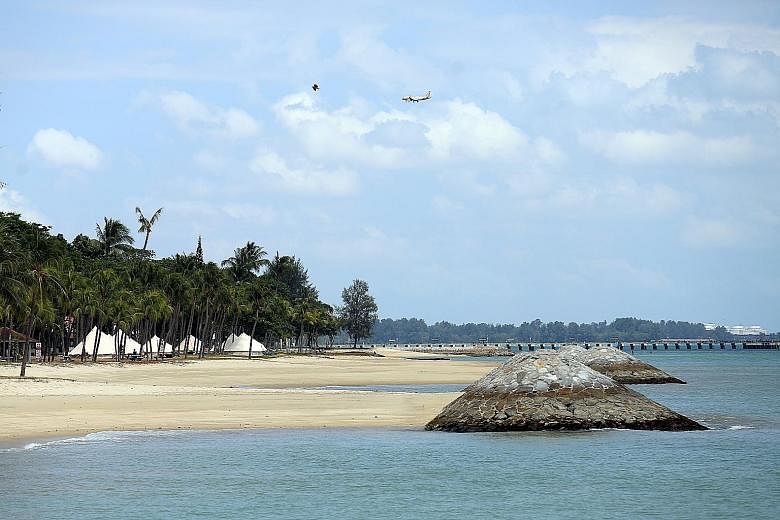The seas are rising faster than expected, and Singapore is getting ready to adapt to the consequences, said Dr Amy Khor, Senior Minister of State for the Environment and Water Resources, yesterday.
"Unlike larger countries, we do not have hinterland to retreat to," said Dr Khor.
"If nothing is done, rising sea levels will significantly impact not only our coastal landscape, but also our communities, businesses and our very way of life."
She was speaking at a symposium on sea-level rise at the Singapore Management University, organised on the sidelines of the first meeting of the United Nations climate science body in Singapore.
About 80 experts from the Intergovernmental Panel on Climate Change (IPCC) spent the past three days hammering out details of what an upcoming report on the state of the planet will include. The Synthesis Report for the Sixth Assessment Report is due in 2022, and will provide governments with the most updated scientific information relevant to climate change.
The report will also draw on three special reports that the IPCC has released over the past year, including the differences in impact of a 1.5 deg C versus a 2 deg C warming scenario, and the effects of climate change on land, oceans and the cryosphere - the frozen parts of the planet.
Yesterday, Dr Khor pointed to the IPCC's special report on the oceans and cryosphere, saying its findings were sobering.
The report had found that if warming continues unabated, sea levels may rise by several metres in the centuries ahead. Earlier estimates had said sea levels could rise by about 1m by 2100.
Severe sea-level events, which could overwhelm low-lying areas here, could also start happening once every year by around 2055 to 2065, instead of once a century.
Climate science is a rapidly evolving and complex field, requiring wide-ranging expertise across many disciplines, said Dr Khor.
Singapore has been moving to boost scientific knowledge in this field, she said, setting up the Centre for Climate Research Singapore in 2013, for example.
The Republic will also tackle climate change by reducing its carbon footprint, through decarbonising its economy and introducing a carbon tax.
Singapore will also cooperate with the region, because it cannot address climate change alone, Dr Khor said.
"Singapore and countries in the region will need to work together to strengthen adaptation-planning capabilities and resolve challenges presented by climate change."
Meanwhile, the Centre for Climate Research Singapore on Oct 14 started calling for proposals for sea-level science research.
Centre director Erland Kallen said that global projections for sea-level rise are usually for large ocean basins, such as the Pacific and Atlantic oceans.
However, Singapore's location in the tropics surrounded by shallow seas means more research must be done to tailor global projections for its unique context, said Professor Kallen.
For example, even though Singapore is far away from the Greenland and Antarctic ice sheets in the north and south hemispheres respectively, it is still disproportionately affected by melting glaciers.
Prof Kallen told The Straits Times: "When Greenland and Antarctica melt, the ice mass is reduced, and the gravitational pull from the ice sheets decreases." This causes sea levels near the glaciers to go down.
However, due to the change in the gravitational pull of the ice sheets, the tropics will be significantly affected by the sea-level increase, Prof Kallen said.
He added: "There is a lot of research being done globally on sea levels, but if we are to know what effects rising sea levels will have for Singapore society, we have to build the expertise ourselves.
"The Centre for Climate Research Singapore will seek to apply knowledge to Singaporean conditions, so we can understand better the impact of sea-level rise on Singapore."


